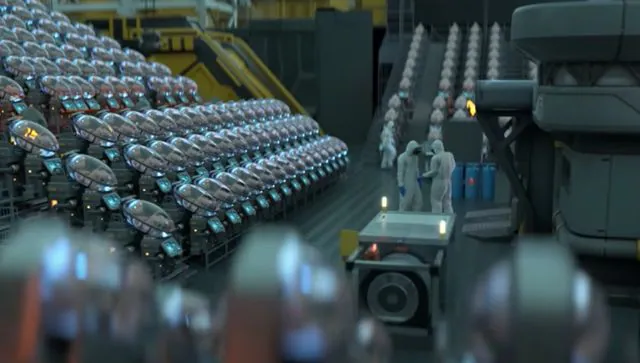Dystopian movie references aside, in the past, it was necessary for women to go through pregnancy in order to have a child. But what if that wasn’t necessary anymore?
With the concept of EctoLife, parents have the ability to create custom-made babies through the use of artificial wombs.
The Elite Package gives people the option to select their baby’s characteristics, such as intelligence, height, hair color, eye color, physical strength, and even skin tone.
EctoLife, the world’s first artificial womb facility, is still in its infancy stage but has the potential to offer a new and unique approach to baby production.
The idea is brought to life by Hashem Al-Ghaili, a producer, filmmaker, and science communicator hailing from Berlin.
Al-Ghaili, who also holds the title of molecular biologist, presents his vision on his website.
Ectolife is reportedly capable of growing up to 30,000 babies annually in its laboratory, using transparent “growth pods.”
The facility, powered by renewable energy, aims to have 75 labs, each equipped with 400 growth pods or artificial wombs.
The growth pods simulate the environment inside a mother’s womb, providing parents with the ability to monitor their baby’s growth and development through a screen or an app on their phone.
The artificial intelligence-based system also keeps track of the baby’s physical features and alerts parents to any potential genetic abnormalities.
According to reports, the delivery process is simple, with the baby being easily removed from the pod at the push of a button.
EctoLife is marketed to offer a stress-free, painless solution for delivering your baby.
The delivery process is effortless and can be accomplished with just the touch of a button, according to Metro.
The artificial womb allows for the safe discharge of the amniotic fluid and easy removal of the baby from the growth pod.
In the near future, Al-Ghaili predicts that artificial womb facilities could become a reality if ethical restrictions are lifted.
He believes this could happen within the next ten years.
He adds that every aspect of the concept is rooted in science and has already been successfully demonstrated by scientists and engineers.
“If these ethical restrictions are relaxed, I give it 10 to 15 years before EctoLife becomes widely used everywhere,” he declared.
Critics argue that this kind of technology sets the stage for humans treated as commodities to grow like plants in a backyard and could potentially take away women’s historic role as givers of life.
